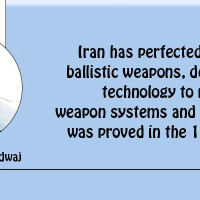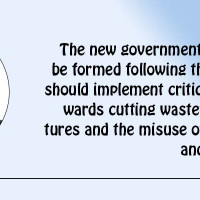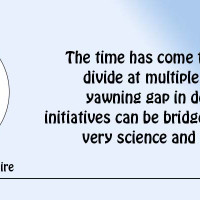- Friday, 23 January 2026
Ominous Turn In Russia-Ukraine War
After two-and-a-half years of relentless attritional warfare, the Russian-Ukraine conflict escalated to a new height when an elite Ukrainian military unit mounted an unexpected incursion into Kursk region of Russia on 6 August. Just when Russia entrenched its position in eastern Ukraine aiming to bring entire Donbas region under its control, Ukraine's audacious strike deep into Russian territory appeared that the tide of war might be turning.
Ukraine mounted this offensive after receiving a new arsenal of sophisticated heavy weapons, including F-16 fighter jets, air defense systems, HIMARS rockets, tanks and armoured vehicles from its western allies. A fresh offensive from Ukraine army against Russia was anticipated following the delivery these weapon systems to Kyiv but the element of surprise lay in the choice of unexpected target and the relative ease with which the Ukrainian forces penetrated deep into the Russian territory. On the basis of the report available at the time of writing this article, the Ukraine army unit has made territorial incursion up to 12 to 13 kilometers causing significant damage on Russian infrastructures and forcing the Russian government to scramble in a chaotic evacuation of its citizens from the zone of conflict.
Significant incursion
According to western sources Ukraine has seized control of more than 1000 sq.km of Russian territory which Russia has also not denied as yet. Regardless the extent of territorial control, this is undeniably the most significant incursion of foreign forces into Russian territory after the Second World War. The choice of target is also significant as Kursk is the region where longest and most intense tank battle had taken place between Russia and Germany in 1943. It is well over two weeks after the incursion but Russia has not yet been able to mount a meaningful counter offensive to dislodge the intruding forces. This has not only boosted the sapping moral of the Ukrainian Army but has also delivered a severe blow to the reputation of Russia as the second strongest military power of the world.
At present the world is observing Ukrainian spectacle in Kursk with a mix of surprise and uncertainty. While Ukraine's western allies have welcomed the incident asserting Ukraine's right to self-defense, many military strategists and political commentators have found the motive of the Ukraine action inscrutable. They argue that despite initial territorial gains by Ukraine, the Kursk putsch may not only be unsustainable but it may also expose the intruding unit to the risk of being encircled and exterminated.
The pro-western media have suggested that the Ukraine's intention behind the Kursk incursion was to create a buffer zone against Russian advance and to capture the Kursk Atomic Plant. This would serve as a counterbalance to the Zaporazhia Nuclear Plant in Ukraine which is now under Russia's control. Some, military analysts also say that Ukraine's other objectives were to cut off a gas pipeline that supplies gas to Hungary, Slovakia and other East European countries in addition to using the captured territory as a bargaining chip in the broader context of the conflict. But achieving this would not as easy as that in the face of the formidable Russian military forces.
Russian diplomat and analyst, Dimitry Poliyansky, recently said in a TV interview that what Ukraine had done in Kursk was an act of provocation intended to disrupt Russia's internal stability but Russia would soon restore its control over the intruded territory. In the same interview, retired US army colonel Lawrence Wilkerson, while acknowledging Ukraine's right to self-defense, highlighted the risk of such cross border incursion. He said that the operation was tactically surprising but was likely to strain Ukraine's military resource at the same time complicating diplomatic efforts towards peace. Amidst the conflicting perspective on the war in the Eastern Ukraine, the Kursk incursion has significantly escalated the tension between Russia and the NATO countries because of involvement of western weapons in the Ukraine's offensive.
The Russian-Ukraine conflict has persisted for more than two-and-a-half years despite repeated attempt at brokering a ceasefire under international mediation. Russia had invaded Ukraine on 24 February 2022, with three major objectives. They were to overthrow the Volodymyr Zelensky's government and establish a pro-Russian administration in Kyiv, demilitarize Ukraine so that it no longer posed a threat to Russia and to secure control over Donetsk and Luhansk, collectively known as Donbas region of Ukraine where the population is prominently of Russian ethnicity.
However, as conflict prolonged, the initial objectives of Russia faded away as both the warring countries bogged down in a grinding war of attrition. This shift took place primarily because of the decision of western powers to bolster Ukraine's war effort by supplying increasingly lethal weapons rather than exploring the avenues leading to peace. The Ukrainian military's incursion into Russian territory with the support of NATO and American weapon system has set off an alarm for escalating the war to a wider regional or even global conflict with catastrophic consequences.
Grave threat
The ongoing Russia-Ukraine war in Eastern Europe and Israel and Hamas in West Asia have emerged as a grave threat to the continued existence of human civilisation. The enormous loss of human life and physical infrastructures underscore the urgency for negotiated resolution of conflicts. In the context of the grave global situation, Indian Prime Minister is to visit Ukraine on 23 August to persuade Volodymyr Zelensky to come to the negotiation table for peace. He had also visited Kremlin on 9 July to convince Vladimir Putin that there would be no winners in a war.
At this critical juncture, the leaders of the warring countries, particularly, Russia and Ukraine would do well to revisit the lessons of history to realise the futility of conquest and make sacrifice for ensuring the preservation of human civilization. Negotiation is not one of the options; it is the only tool at our disposal to protect human civilisation from the ravages of war. It is, therefore, responsibility for people everywhere to support diplomatic efforts to ensure that reason prevails over the chaos of war.
(Dr. Bharadwaj is former ambassador of Nepal to Qatar and former chairperson of Gorkhapatra Corporation. bharadwajnarad@gmail.com.)

















